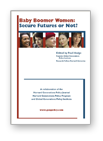TOKYO, JAPAN, NOVEMBER 3, 2011: Now that I am in Tokyo, the consequences of the March 11, 2011 devastating earthquake and tsunami have been brought home to me.
Japan has been shaken to its core. Thousands of people perished. In addition to massive property damage, as reported around the world, the Fukushima nuclear power station sustained critical damage to its reactors which, in turn, caused reactor melt downs and uncontrolled releases of radiation/radioactive materials.
While many people I have talked with here in Tokyo express deep grief over the great loss of life and are worried that there will be another devastating quake, all express diminished confidence in the government’s ability to protect them/their loved ones from the health risks associated with exposure to unseen nuclear radiation.
Admittedly, the Japanese government has been dealing with a disaster of unprecedented scope and dimension. Japan’s disaster planning never envisaged a set of scenarios as occurred on March 11th.
But even with this understanding, many people feel that the government has been overwhelmed and may be withholding information as to the real public health risks involved. Undercutting the government’s credibility further are the uncontested realities that the government never mandated that systems be in place to prevent the type of damage sustained at the Fukushima nuclear facility. Moreover, the government never mandated that systems be in place for nuclear facilities to provide timely accurate damage data to policy makers so that effective damage control responses could be executed on.
The unanticipated consequences of the Fukushima nuclear plant’s breakdown are still unfolding and affecting the government’s credibility. For example, this week, the government just determined that a new radiation leak may have occurred from a chain reaction of a reactor thought to be under control. New reports of contaminated water/food in Tokyo are being reported on a regular basis. Also, this week, the first shipment of the massive amount of quake/tsunami debris is being disposed of at Tokyo disposal sites because no other municipality has agreed to officially accept the debris due to fears of radioactive contamination from the Fukushima nuclear plant. On the international front, certain Japanese food products have been banned in China/other countries, and, believe it or not, Hong Kong’s Japanese restaurants lost 80% of their business due to fears of contamination.
To bridge this credibility gap, the government has made some tough decisions and initiated some proactive programs. It has brought in “independent” experts from other countries to investigate and advise it on effective procedures/practices to control the nuclear site. It has designated a 20 km radius of the plant as a no-entry zone and advised people living outside the zone where high radiation doses had been detected to evacuate. It was just announced that the government’s nuclear safety panel will expand priority areas that should be prepared for possible atomic accidents to a 30-km radius of a nuclear power plant from the current 8 km.
As reported in the Wednesday November 2, 2011 edition of the Japan Times, at a national press conference, Yasuhiro Sonoda, Parliamentary Secretary for the Japanese Cabinet, drank a glass of water which had been decontaminated from low-level radioactive water taken from puddles inside the Fukushima buildings housing reactors 5 & 6. He did this to prove the water was safe and government policies were on the right track. The press didn’t buy into it pointing out that drinking decontaminated water didn’t prove things were safe.
Needless to say, eight months after the disaster, people are still worried about the radiation spreading from the Fukushima facility. They are still questioning the safety of their water supplies and the food, meat fish they eat. Daily, many people still check the air trajectory from the Fukushima plant.
While it is often pointed out that the Japanese are more sensitive to nuclear radiation issues because of their WW ll experiences, I think anyone from any country would be sensitive to and concerned if a Fukushima-like disaster hit their country.
For any country with a nuclear power system heed what is going on in Japan. Prepare for the worst case scenario!


